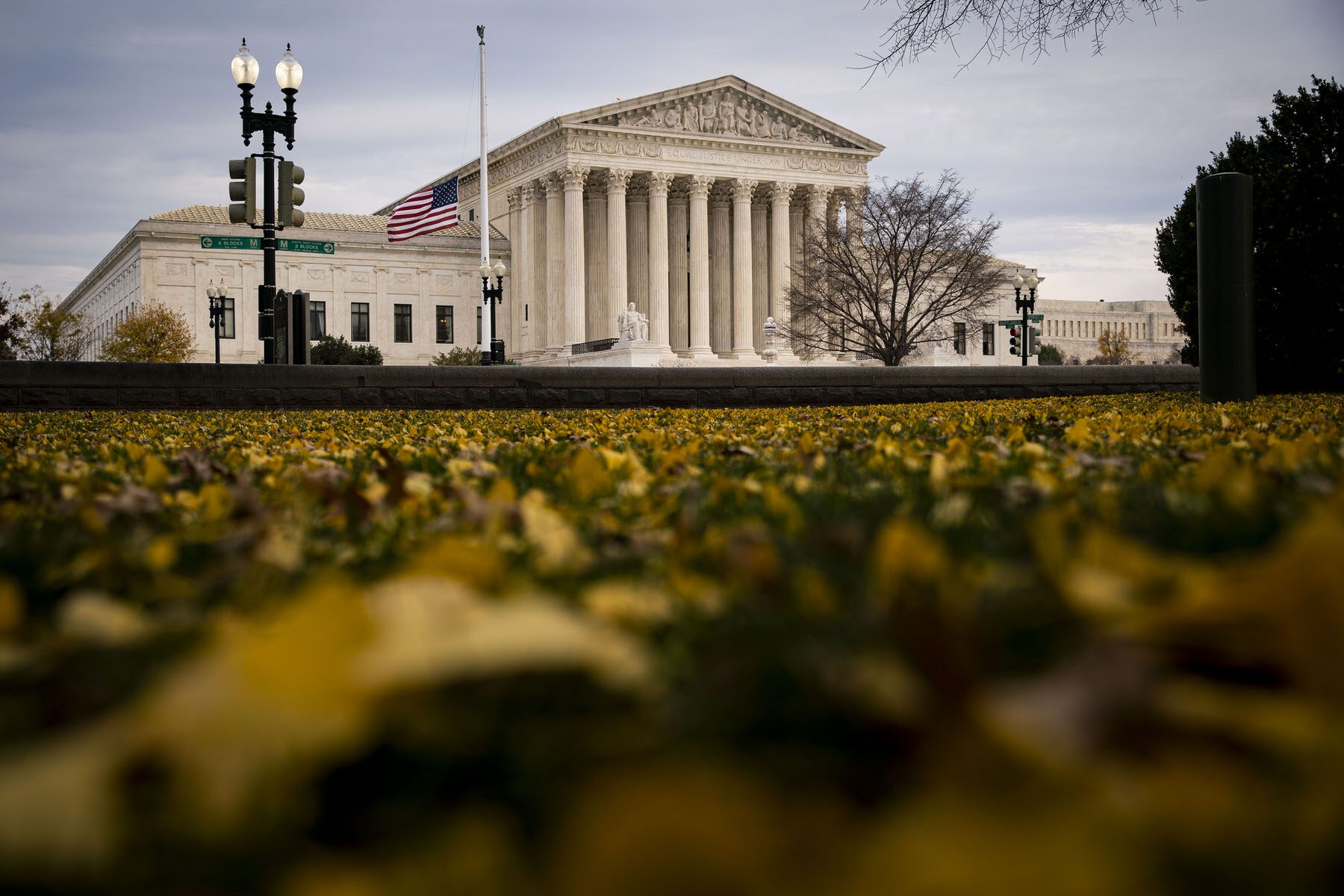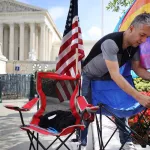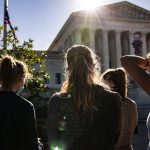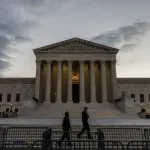The Supreme Court is asking the Biden administration to weigh in on whether it should take up a case over a North Carolina charter school’s dress code requiring its girl students to wear skirts or dresses.
In a brief order Monday, the justices invited U.S. Solicitor General Elizabeth Prelogar to weigh in on whether the court should take up that case, Charter Day School v. Peltier, one of several major court cases in recent years that challenge school dress code policies as sexist and discriminatory.
Charter Day School, a K-8 public charter school operated by a private contractor in Leland, North Carolina, says it seeks to provide a “classical, traditional-values-based education,” enforced in part with a dress code designed to promote “mutual respect between boys and girls.” The case centers around the school’s policy, blocked by a federal court, requiring girls to wear a skirt, skort or jumper to school.
In 2016, three then-parents of students at the school, Bonnie Peltier, Erika Booth and Patricia Brown, filed a lawsuit against the school in federal court on behalf of their children, who were then in kindergarten, fourth and eighth grade, respectively.
The suit challenged the skirt requirement under the Equal Protection Clause of the 14th Amendment and Title IX, arguing that the policy promotes “archaic sex role stereotypes” and “burdens girls with restrictions of their freedom of movement that boys do not suffer.”
-
More from The 19th
- Lawsuits, complaints and protests are upending sexist school dress codes
- A student mom’s dreams of college felt ‘impossible.’ So she built a community of mentors to help her get there.
- The Supreme Court’s multiracial women justices clap back at challenges to affirmative action in colleges
In an email exchange with Peltier featured in the court proceedings, the school founder, Baker Mitchell, argued the skirt rule promoted “chivalry” and “a code of conduct where women are treated, they’re regarded as a fragile vessel that men are supposed to take care of and honor.” He also referenced the 1999 mass shooting at Columbine High School as inspiration for the policy, according to the initial lawsuit, and suggested the dress code would make school shootings less likely.
In 2019, District Judge Malcolm Howard ruled in favor of the plaintiffs, represented by the American Civil Liberties Union, and prohibited the school from enforcing the skirt requirement. Both parties appealed the case to a panel of the U.S. Court of Appeals for the 4th Circuit, which ruled that dress codes treating boys and girls differently violated Title IX, but that the school was not an actor of the state and thus couldn’t be sued on constitutional grounds for its dress code policies.
The full 4th Circuit reheard the case and largely ruled against the school in a 10-6 ruling in June 2022, finding that the school is a state actor and thus violated the Equal Protection Clause with its skirt requirement. The ruling remanded whether the policy violated Title IX back to the district court.
Judge Barbara Milano Keenan wrote the court’s opinion and noted that “nothing in the Equal Protection Clause prevents public schools from teaching universal values of respect and kindness.”
“But,” she continued, “those values are never advanced by the discriminatory treatment of girls in a public school. Here, the skirts requirement blatantly perpetuates harmful gender stereotypes as part of the public education provided to North Carolina’s young residents.”
In September 2022, Charter Day School asked the U.S. Supreme Court to take up the case.
A group of Republican attorneys general led by Texas’ Ken Paxton, North Carolina House Speaker Tim Moore, religious rights groups and the Independent Women’s Law Center have filed amicus briefs encouraging the court, dominated 6-3 by conservative justices, to take up the case.
The U.S. Supreme Court has defended the rights of students to engage in political expression at public schools under the First Amendment but has never directly ruled on the constitutionality of student dress codes under the Equal Protection Clause.
The Charter Day School case carries significant implications not just for gender-based dress code policies in schools, but also for whether students at charter schools have the same constitutional rights and protections as those in traditional public schools.
The full circuit court’s ruling marks the first time a federal appeals court had held that charter schools are state actors with the same obligations as public schools.
The ruling reasoned that the charter school, which receives 95 percent of its funding from the government, is a state actor because North Carolina had created the charter school system to fulfill its mandate under the state constitution to provide free public primary and secondary education to all students.
The school said in its brief to the Supreme Court that the circuit court’s ruling “eliminates the independence of charter schools and constricts parental choice,” with Mitchell arguing that labeling the school as a state actor “will have a disastrous effect on charter schools throughout the country if allowed to stand.”
Mitchell and Aaron Streett, a lawyer representing the school in the case, said they are encouraged by the justices inviting the Biden administration to weigh in. Streett told Reuters that Supreme Court asking for Prelogar’s input is “a positive sign” for their case that “indicates that the court views this as an important case that may merit further review.”
Prelogar already argued before the Supreme Court in two high-profile cases originating in North Carolina that the court has heard this term, the Carolina Journal noted, representing the federal government in a case challenging the University of North Carolina’s affirmative action policies and in Moore v. Harper, a significant election law case.
Peltier said in a statement after the circuit court’s ruling that the decision finding the skirt rule in violation of the Constitution meant that girls “will now be able to learn, move, and play on equal terms as the boys in school.”
“In 2022, girls shouldn’t have to decide between wearing something that makes them uncomfortable or missing classroom instruction time,” she said.







